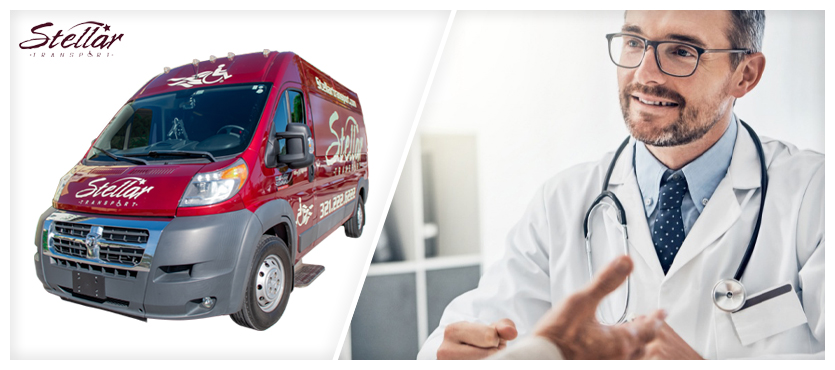Cancer treatment can be one of the most physically and emotionally demanding journeys in a person’s life. It often involves a series of carefully scheduled appointments, from chemotherapy and radiation sessions to lab work, follow-ups, and supportive therapies. Yet for many patients, getting to and from these appointments becomes a major challenge—especially if they are fatigued, immunocompromised, or facing financial and mobility barriers. Transportation, though often overlooked, plays a critical role in a cancer patient’s ability to stay on track with their care plan and maintain quality of life.
Why Transportation Becomes a Challenge
During treatment, many patients experience side effects that make driving unsafe or uncomfortable. Nausea, dizziness, neuropathy, and fatigue are common, especially following chemotherapy. Others may be advised not to drive due to medication side effects or overall weakness. Relying on family or friends for frequent trips can become burdensome, especially when appointments are long or occur several times a week. In rural areas or cities without robust transit systems, public transportation may not even be an option.
For patients without a consistent way to travel, missed appointments become a risk. This can delay treatments or disrupt continuity of care—both of which can negatively affect recovery outcomes. Reliable transportation is not just a convenience—it’s a medical necessity.
The Importance of Consistent Attendance
Cancer care is built on precision and timing. Treatments are scheduled in cycles to maximize effectiveness, and diagnostic tests are often closely timed to evaluate progress. When a patient misses or postpones an appointment, it can alter their treatment schedule and affect how well their body responds. It may also lead to increased emotional distress, as patients worry about falling behind or compromising their prognosis.
Consistent access to transportation allows patients to focus on healing, not on logistics. It helps reduce no-show rates, supports care team coordination, and keeps treatment plans intact. More importantly, it provides peace of mind—something every patient deserves during a difficult time.
How Non-Emergency Medical Transportation (NEMT) Helps
For patients undergoing cancer treatment, Non-Emergency Medical Transportation (NEMT) offers a safe, supportive, and dependable option. Unlike standard rideshare services or public transit, NEMT is designed with medical needs in mind. It provides:
- Door-to-door assistance, ensuring patients don’t have to navigate stairs, parking lots, or long walks to the entrance.
- Wheelchair-accessible vehicles, accommodating those with limited mobility or balance issues.
- Trained drivers who understand the needs of medically vulnerable passengers and offer compassionate service.
Many patients undergoing chemotherapy or radiation appreciate the reliability and comfort of NEMT services, particularly when they are too weak to travel alone. NEMT also supports return trips after appointments, which is crucial when fatigue or medication makes solo travel unsafe.
Supporting Family and Caregivers
Cancer affects entire households, not just individuals. When reliable transportation is available, the burden on caregivers is greatly reduced. Loved ones who may have taken time off work or rearranged schedules to provide rides can feel confident knowing their family member has access to safe and timely transport. This allows caregivers to preserve their own energy and mental well-being—key components of long-term support during cancer recovery.
Additionally, having professional transportation can relieve patients of feeling like a burden, preserving their sense of autonomy and dignity.
Strengthening Outcomes and Quality of Life
The value of accessible, reliable transportation extends beyond getting to appointments—it can also reduce stress, improve mood, and support overall quality of life. When patients don’t have to worry about how they’ll get to treatment, they’re better able to focus on rest, nutrition, and mental well-being.
By ensuring patients arrive on time and in comfort, transportation services help keep treatment on schedule and reduce the risk of complications that arise from delayed care. It’s a small investment that pays major dividends in both health outcomes and peace of mind.
Partnering in the Healing Journey
Cancer treatment is a journey that no one should navigate alone—or without a reliable way to reach the care they need. Consistent transportation makes a real difference in the lives of patients, enabling timely treatment, easing emotional strain, and supporting both physical and emotional recovery. Stellar Transport proudly offers dependable non-emergency medical transportation to patients across Florida, helping individuals focus on healing while we handle the ride. To learn more or schedule transportation, please contact us.

